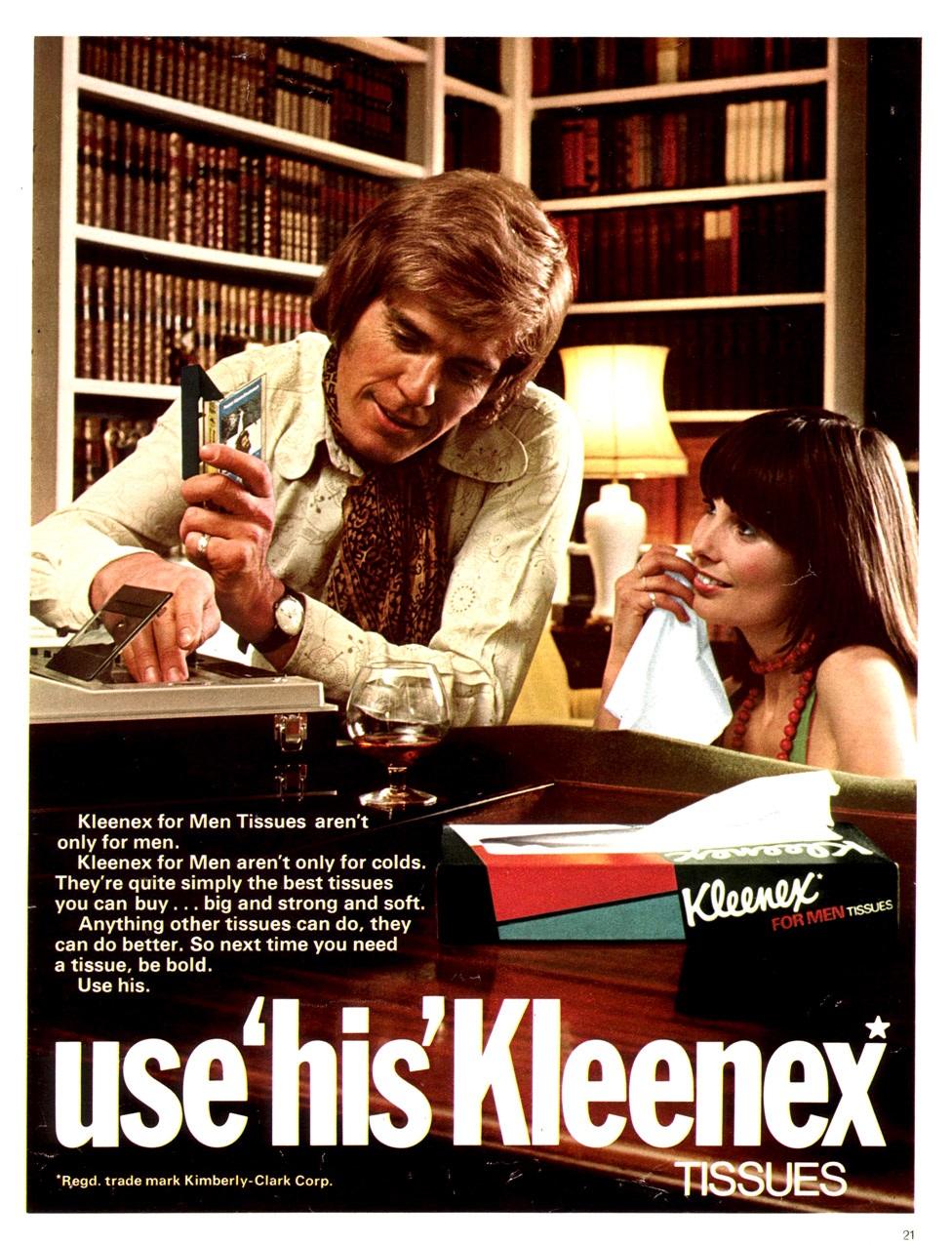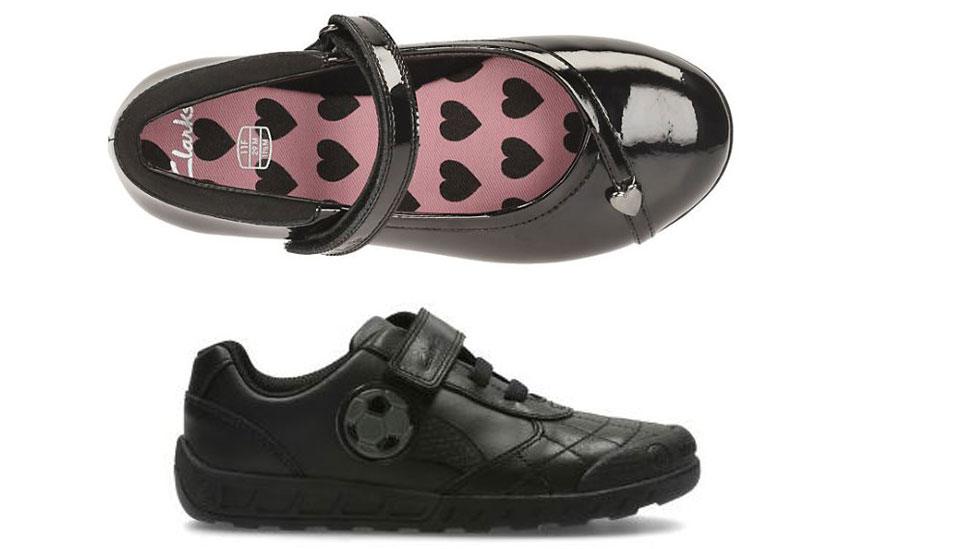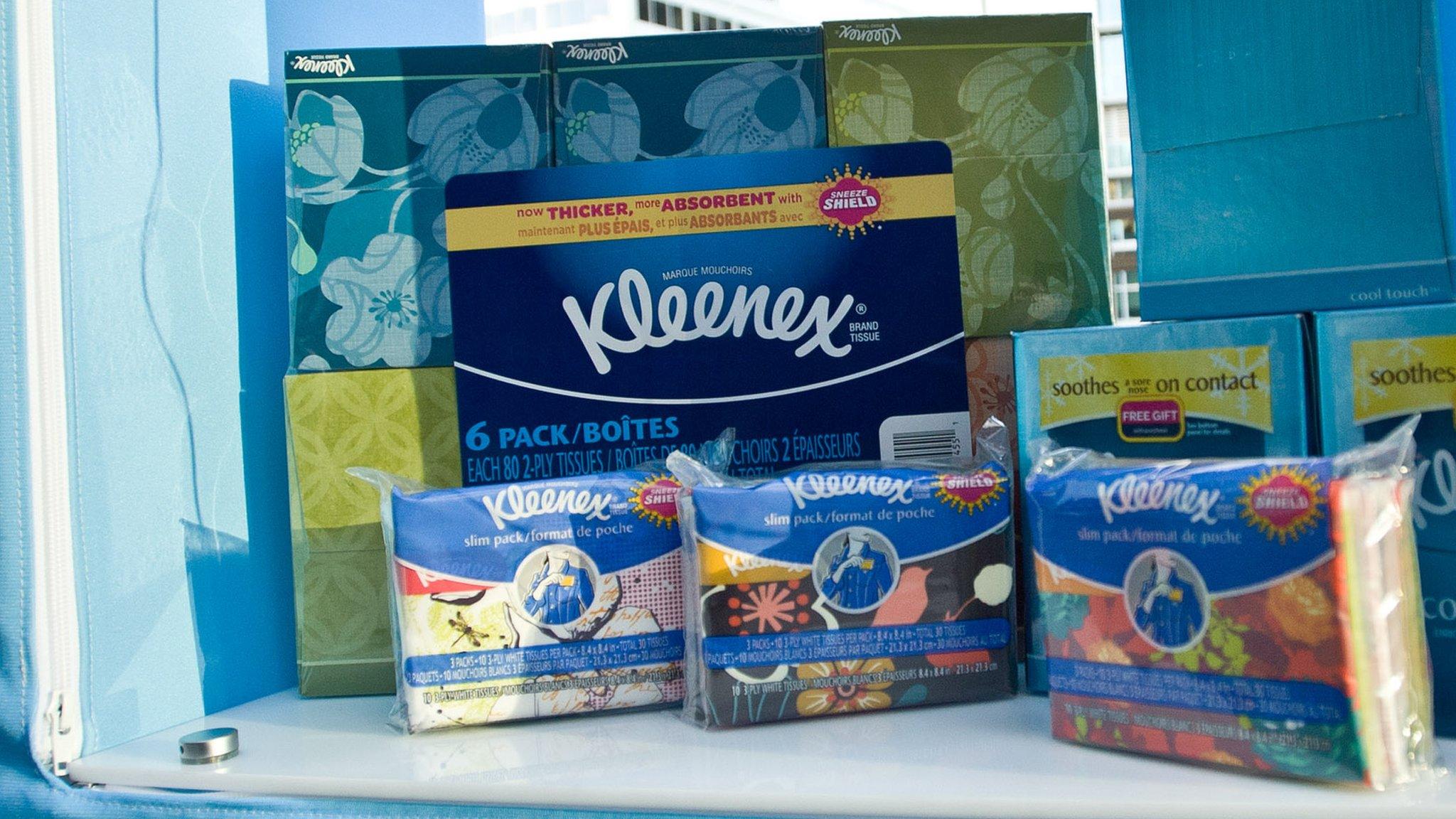Kleenex bins 'Mansize' tissues
- Published
- comments

Kleenex is scrapping "Mansize" branding from its tissue boxes after 60 years on the shelves as consumers called it out for being sexist.
The company said the tissues would now be called "Extra Large".
One customer questioned the firm after her four-year-old son asked if "girls, boys and mummies" can use them.
Kleenex told shoppers to "keep an eye out" for the new branding, saying some of its new larger boxes are already on sale.


Kleenex For Men first launched in 1956, offering an alternative to large cotton handkerchiefs that were still popular at the time, and claiming to "stay strong when wet".
Online critics tweeted Kleenex to ask them why its products still used the term "Mansize", saying "the world is changing" and that "it is 2018".
Allow X content?
This article contains content provided by X. We ask for your permission before anything is loaded, as they may be using cookies and other technologies. You may want to read X’s cookie policy, external and privacy policy, external before accepting. To view this content choose ‘accept and continue’.

Allow X content?
This article contains content provided by X. We ask for your permission before anything is loaded, as they may be using cookies and other technologies. You may want to read X’s cookie policy, external and privacy policy, external before accepting. To view this content choose ‘accept and continue’.

Allow X content?
This article contains content provided by X. We ask for your permission before anything is loaded, as they may be using cookies and other technologies. You may want to read X’s cookie policy, external and privacy policy, external before accepting. To view this content choose ‘accept and continue’.

Kleenex thanked customers for their concern and confirmed the new "Extra Large" labelling.
The BBC has approached Kleenex for comment, but the company has yet to respond.
However, in a statement given to the Daily Telegraph, external, a spokesman for its parent company, Kimberly-Clark, said the firm was registering "a consistent increase of complaints on gender concern".
He added: "Kimberly-Clark in no way suggests that being both soft and strong is an exclusively masculine trait, nor do we believe that the Mansize branding suggests or endorses gender inequality.
"Nevertheless, as we remain committed to developing the best possible products for our consumers and take any feedback extremely seriously, we decided to renovate our current product and update the product subbrand as Kleenex Extra Large."

Branding in the spotlight

A number of products have drawn criticism for "sexist branding" in recent years - but what do you think?
In February, the CEO of PepsiCo was hit with a wave of condemnation after announcing the company was developing a range of crisps especially for women. Indra Nooyi highlighted the importance of fitting the snack into a handbag and reducing how loudly the crisps crunch when eaten.
Bike manufacturer Pinarello, who supply bicycles to Team Sky, got in trouble in last November over its electronic road bikes. The company said the bike was aimed at weekend riders and female riders who want to "follow easily the men's pace".
Nikon became the centre of attention in September last year when they recruited 32 new brand ambassadors to represent their cameras. The problem? They were all men.
Shoe shop Clarks faced a backlash in August 2017 as they launched their new children's school shoe brands. The boys' shoe, with insoles decorated with footballs, was branded "Leader". The girls' shoe, however, carried a heart pattern on the inside and was named "Dolly Babe".

The Advertising Standards Authority - which regulates adverts in the UK - told the BBC it had not received any complaints about the product, but it was carrying out "a significant amount of work around gender stereotypes in ads".
Plans include setting new standards on adverts that feature stereotypical gender roles or characteristics, and cracking down on those which mock people for not conforming to stereotypes.
- Published23 January 2018

- Published18 July 2017

- Published23 May 2018
